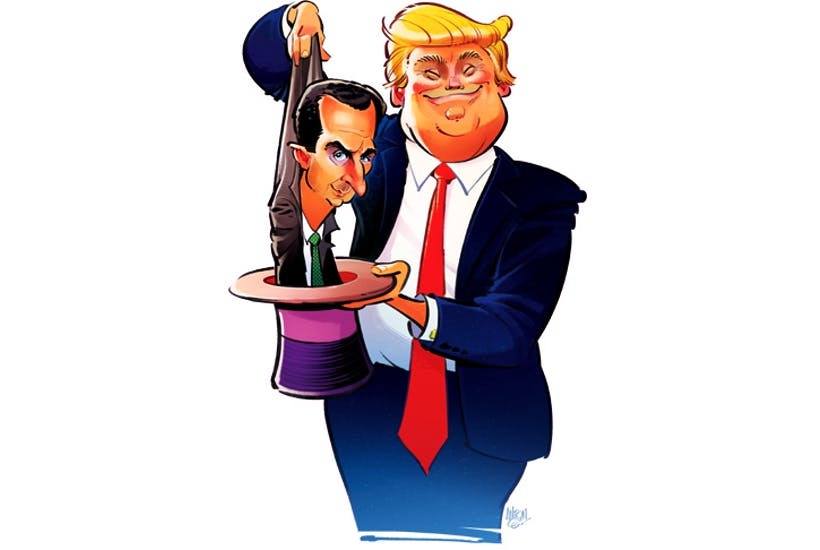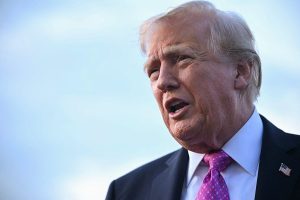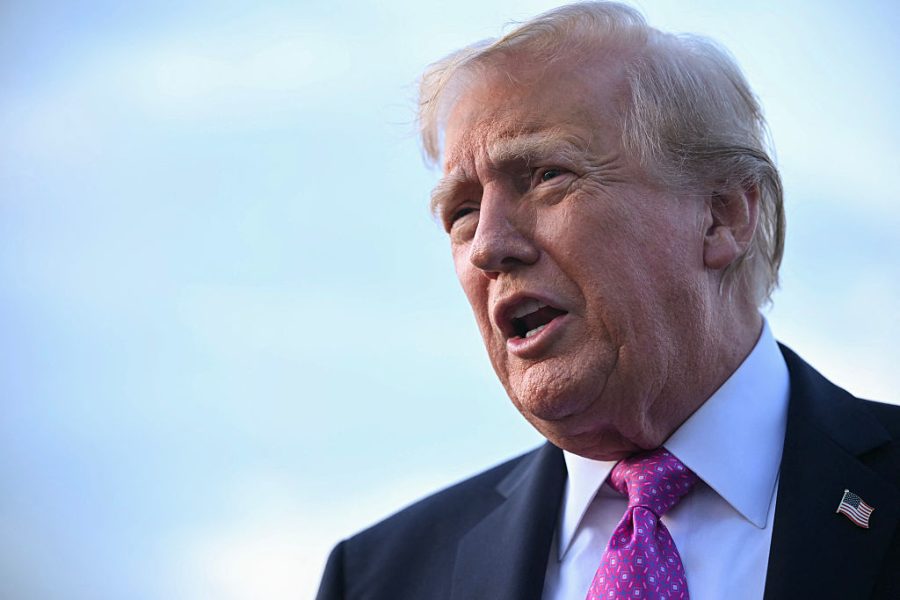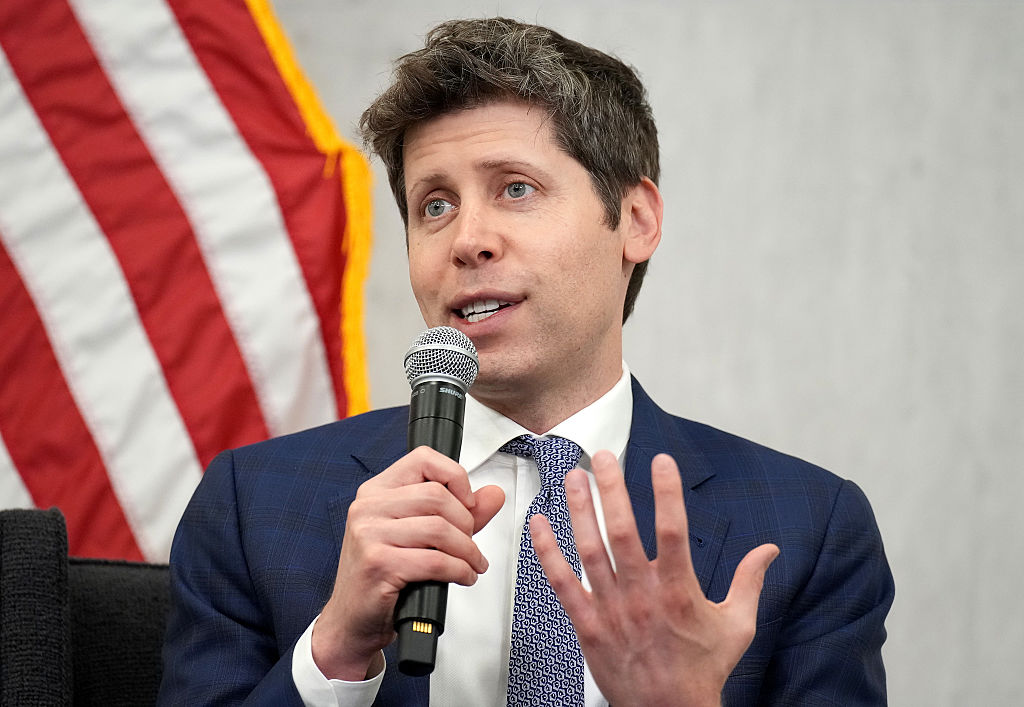Amid the confusion and the almost deafening cries of treachery and collusion over Donald Trump’s relations with Russia, few noticed the most tangible outcome of this week’s Helsinki summit. In the lead-up to his face-to-face talk with Vladimir Putin, senior US and Russian diplomats — in close coordination with leaders from mutual ally Israel — brokered a deal among all the warring parties (bar the Islamist terrorists) finally to end the devastating seven-year Syrian civil war. As is often the case with Trump, the hype tends to drown out the message but it was there for anyone paying close enough attention. The US, Russians and Israelis have agreed on a solution to Syria. His name is Bashar al-Assad.
The summit agreed on the need for a permanent ceasefire between Syria and Israel (the two countries have been in a state of war since 1948) and the Syrian government will offer guarantees regarding the Jewish state’s security. With Saudi Arabia and the United Arab Emirates said to be behind Israel, and Turkey scrambling to fall into line behind Russia, it’s a done deal. Assad, in short, is here to stay — and the West must now begin the process of coming to terms with the fact that it backed the losing side in the Syrian civil war.
Given America was close to going to war against Assad not so long ago, it’s quite a shift — and one that has been some time in preparation. Last month, Trump quietly abandoned the US-backed Islamist rebels in south-western Syria. This was the birthplace of an uprising against Assad that began as a peaceful student protest but quickly drew in every major regional player, as well as key Nato members and Russia. Most of the rebels surrendered, and have been given safe passage to their last redoubt in the north. Those who remain now await what promises to be a final, devastating onslaught from the Syrian army and their allies in the Russian Air Force. And yes, we should expect the two to act in tandem: Syria is now, to all intents and purposes, a Russian protectorate.
The Syrian rebels who spent so long begging for American help and arms can now expect to be entirely abandoned. As part of the de-escalation process, Trump is said to be eager to withdraw the 2,000 or so US special forces still stationed in Syria. This way he could (rightly) claim to be honouring his campaign pledge to keep US soldiers out of interminable foreign conflicts whenever possible, while — in a ‘Mission Accomplished’ photo op — announcing the defeat of Islamic State in Syria. And all in time for US midterm elections in November.
None of this would have been possible without the Israelis’ consent. Days before the Helsinki summit, Benjamin Netanyahu dropped his own diplomatic bombshell following yet another meeting with Putin in Moscow (they have met at least nine times during the past 18 months). Israel, he said, would have no problem working with an Assad regime in Syria in the future. This is despite his repeated calls for regime change, and the Israeli air force bombing military targets inside the country dozens of times over the past few years.
So why is Bibi now keen on Assad? Because his main concern is routing the Iranian forces who have been settling down in Syria — often with Russian connivance. Israel also wants fighters from Hezbollah to return to Lebanon, and for Syria’s own forces to stay away from the border areas with Israel. If Russia would agree to this, Israel would be content to accept that Syria is under Russian management — and that the Kremlin has its own naval base on the Mediterranean.
Putin seems to have convinced Netanyahu that he would do everything in his power to see off the Iranians, and keep everyone far from the Israeli border. Given the almighty mess inside Syria, that is as much as Israel should reasonably expect of Putin in the short term. And what do the Iranians get in return? In what appears to be compensation for selling them out, Putin announced $50 billion in direct Russian investment in Iran’s oil and gas sectors — up from precisely nada the day before. Hezbollah can now retreat to southern Lebanon and Iran can even save face by saying its revolutionary guard has seen off Assad’s enemies.
Israel seems rather impatient for this new deal to begin, and has been bombing the bejesus out of Hezbollah and Iranian regime targets in Syria — even as the summit was convening. No one in Moscow has said anything significant about them publicly. And as a further concession, Putin has shelved plans to sell Assad Russia’s formidable S-400 air-defence systems, which would have been used to successfully repel further Israeli strikes. Trump now has a new red line: getting Iran out of Syria. ‘I made clear we will not allow Iran to benefit from our successful campaign against Isis,’ he said in Helsinki.
And as for Assad? The man Trump was calling a ‘monster’ as recently as April? The President is now willing to look the other way. Trump’s adviser John Bolton said that Assad’s continued rule in Syria is no longer a ‘strategic issue’ for the US. As comebacks go, this is rather extraordinary. Assad has gone from being the focus of western ire —with the House of Commons even taking a vote on whether to bomb his army — to being there for good.
As one seasoned Middle Eastern observer has drily noted, the West and its allies threw everything at him — but to no avail. Assad is now the first Arab leader to survive an attempt at regime change coordinated by the West, Gulf Arabs and Israel since Egyptian strongman Gamal Abdul Nasser emerged unscathed from the Suez debacle back in 1956. Even his alleged use of chemical weapons — punished by Trump himself in a missile strike three months ago — has not derailed his campaign.
The impotence of Assad’s enemies was almost comically illustrated when last week Syria was given the rotating presidency of the UN-backed Conference on Disarmament. Quite something for a leader judged by the UN to have used chemical weapons as a routine weapon of war.
Far more important for Assad is that, in the eyes of most of the Syrian people, he is a hero — and not least for having saved their bacon by wiping out Islamic State. An annual survey of Arab public opinion published last week revealed that the US (84 per cent) and Israel (90 per cent) are still perceived by Arabs as the greatest threats to regional security, ahead of Syrian allies Iran and Russia. More to the point, according to the same survey an overwhelming majority of Arabs (81 per cent) were also found to view US foreign policy towards Syria negatively.
No one is likely to congratulate Trump for having skilfully navigated the Syrian minefield. But his decision to leave Syria’s fate to the Syrians (and their new friends in Russia) is the bravest and most logical decision by a US president when it comes to the Middle East since Eisenhower ordered Britain, France and Israel to withdraw from Suez. His comments at the Helsinki press conference underlined how little interest he has in the conflict: he sees it as someone else’s war. And if American withdrawal means handing Russia a large sphere of influence in the Middle East, another Mediterranean asset to go along with Ukraine, then so be it.
We had best get used to this American disinterest. Once, Washington policed the Middle East because it thought it would always depend on the region for its energy. Now America will soon be energy self-sufficient — and the expectation of this is visibly shaping its foreign policy. Last year the US produced 90 per cent of its domestic energy needs. So why should the US continue to spend blood and treasure keeping peace in the Middle East? Fracking means it can now finally leave, as long as the Saudis remain willing to help control oil prices.
Under Trump, Americans can now envisage a time when their country isn’t directly involved in a military conflict in the combustible Arab world — with all sides desperate to end the disastrous Saudi-led war on Yemen, and US troops playing an ever more marginal role in Iraq — for the first time in living memory. While it would be naive to hope that the terror threat in the West has disappeared, it is true to say that Islamic State is now effectively defeated and al-Qaeda is a shadow of its former self. Thankfully, even war against Iran remains a distant neocon fantasy, with Trump opting instead for economic sanctions as a way of bringing about regime change in Tehran. (It won’t work, but that’s another story.) He also achieved almost overnight what many had thought impossible: getting the Saudis to abandon their hateful Wahhabi ideology and to stop funding terror abroad.
The result of the Helsinki summit Syrian peace initiative that Trump pulled out of his hat, then, promises to be a win-win for everyone other than the terrorists over there and the warmongers in our midst. Russia gets a proxy in Syria and keeps its warm-water naval port on the Mediterranean coast, as a reward for its brilliant military gamble and massive financial investment in saving Assad. The US gets out of the quagmire. The Gulf Arabs’ paranoia about Iranian expansionism is less acute. Israel gets rid of the threat on its border posed by Iran and Hezbollah. And even the latter can console themselves with the knowledge that their sacrifices prevented a genocide against their fellow shia.
And the West? Well, the West is proving itself to be a bit of an irrelevance. But bearing in mind how much death and destruction our reckless military interventions have caused in the region over the past few decades — to those on the receiving end, most obviously, but to us too, in the form of our soldiers’ deaths and the blowback from Islamist terrorism and the migrant crisis — that is perhaps the best outcome of all. Putin is filling the vacuum, but only the most unhinged anti-Putin fanatic believes that Russia has plans to invade Europe.
And come to think of it, the Putin–haters should be happiest of all. Having to deal with the permanent headache that is trying to resolve the Arab world’s intractable conflicts is something one really should wish on one’s worst enemy.

























